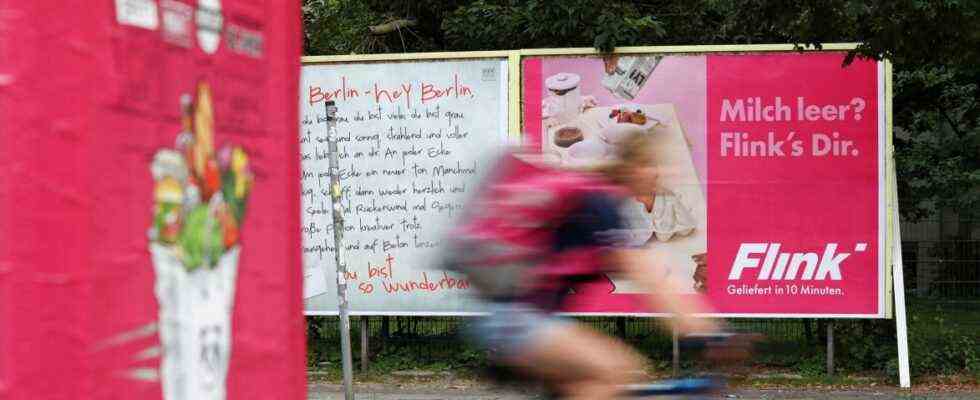Delivery Hero announced that it would offer its food delivery service Foodpanda in other German cities just six weeks ago. On Wednesday, CEO and co-founder Niklas Östberg suddenly stopped expansion. The group listed in the leading index Dax is completely discontinuing Foodpanda Germany – just a few months after the pink bears started here. Only the development department in Berlin should remain from the service.
Is this the beginning of the end of express delivery services in Germany? Does the skepticism of critics like Frank Appel now prove to be justified? “Do you really need groceries within half an hour?” Asked the Post boss publicly the other day. From his point of view: no.
Millions of Germans who are customers of Gorillas, Flink or Doordash see it differently – so do investors. Billions are still flowing into the start-ups. Therefore, one should not write off the business model prematurely. Delivery Hero’s turnaround is evidence of a lack of strategic foresight. In addition, Foodpanda does not withdraw from all markets, but only from its home market.
“Compared to others, the German market is unattractive for delivery services,” says Marc Funk, an expert in the field of delivery services and founder of the e-food platform Front Now. “The Germans are very price-sensitive, and labor rights are, which I think is good, more far-reaching than anywhere else.” In short: the margins are low, the costs are high.
Delivery Hero boss Niklas Östberg.
(Photo: Michael Sohn / AP)
As a listed company, Delivery Hero has clear goals. Östberg recently put it particularly high. In the long term, the operating profit margin should be five to eight percent based on total sales, the Swede announced. However, the group is still making high losses, and at Foodpanda, as with all other fast-growing delivery services, they are likely to be particularly high. Foodpanda’s expansion in Germany would have made it much more difficult to achieve its goals. No wonder that Delivery Hero’s share price soared after Östberg announced the end of his service in Germany.
There is also another problem that all providers from Gorillas to Flink to Wolt have to contend with. In sum, there are not enough drivers for all services that want to do the job. This can be seen, among other things, from the fact that the riders are no longer waiting in front of the warehouse and the promised delivery time of ten minutes is in many cases far exceeded. Östberg had pointed out the driver shortage in a tweet weeks ago.
Flink now has the best cards – and Rewe as a strong partner at its side
Does this mean that the business model fails in the end? “That is not the end of quick commerce in Germany,” says Funk, “but only the end of the uncontrolled popping up of more and more fast delivery services. And it is the beginning of the consolidation of the market.” Consolidation means: one company buys the other until only a few of the many remain.
It is possible that Delivery Hero will only temporarily withdraw from the market in Germany in order to buy up a provider in due course. The group has held a stake of around eight percent in the Berlin start-up Gorillas since October. At the moment, however, it looks as if Östberg did not rely on the right provider.
Gorillas has been publicly criticized for months. The company is accused of treating its drivers badly. Consumers in Germany do register something like this. Studies show that there is hardly any dealer loyalty in this country, but there is product loyalty. That speaks against gorillas. Consumers prefer to buy their Nutella from the clean man, so to speak, than from the bad guy, if they can get it there too. Bad for gorillas.
At the moment, Flink is considered the greatest clean man – at least the delivery service has not yet held a public clinch with its employees. Flink recently raised $ 750 million in a financing round and brought the US competitor Doordash on board. The food company Rewe is already involved in Flink and is very satisfied with it.
“Our decision to partner with Flink in April this year has proven to be the right and successful one,” said Rewe boss Lionel Souque a few days ago. “Flink is now number one in quick commerce in Germany and has ideal conditions to further expand this market leadership.” There can be no question of the end of the fast delivery service business model, at most that the cards are being reshuffled.

